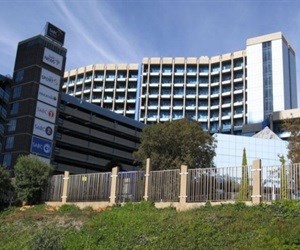
Top stories






More news


Marketing & Media
Ads are coming to AI. Does that really have to be such a bad thing?














The Independent Communications Authority of SA (Icasa) said on Monday the broadcaster had assured the regulator it would air all protest material.
The assurances follow allegations by eight SABC journalists, who the broadcaster fired and rehired after a labour court battle, that the culture of censorship and fear still prevailed.
In a supplementary affidavit filed in the Constitutional Court last week, the journalists said a reversal of the ban decision had not been communicated to editorial staff.
"The SABC has confirmed to the authority in writing that it has noted the decision of the CCC [complaints compliance committee] and will abide by it," Icasa spokesman Paseka Maleka said. "It further confirmed that despite communication of the editorial decision taken on 26 May 2016 the SABC has never canned any material/footage."
Maleka said Icasa was constantly monitoring compliance with its order through legislative and regulatory tools, and was in "continuous" contact with the SABC to ensure that it was adhering to the order. SABC spokesman Kaizer Kganyago declined to comment, saying the matter was still in court.
The journalists have also asked the highest court to declare that Parliament's portfolio committee on communications and the National Assembly breached their obligation in terms of section 55(2) of the Constitution. In August, the committee shot down a proposal for an inquiry into the chaos at the SABC after Communications Minister Faith Muthambi and senior SABC executives appeared in Parliament.
Media Monitoring Africa director William Bird said although they knew the SABC was not complying with the Icasa order, it was difficult to prove it in court. "What we do know despite them showing public protests, the whole culture of self-censorship has been even more profoundly impacted."
He echoed the SABC journalists' allegation that there had been no internal or external communication from the public broadcaster that it was complying, despite disagreeing, with the Icasa order.
"Their failure to communicate that to their staff and externally, on a level demonstrates that they haven't lived up to the Icasa ruling. Of course legally, though, that's not enough to show that they had failed to abide by it," said Bird.
Source: Business Day